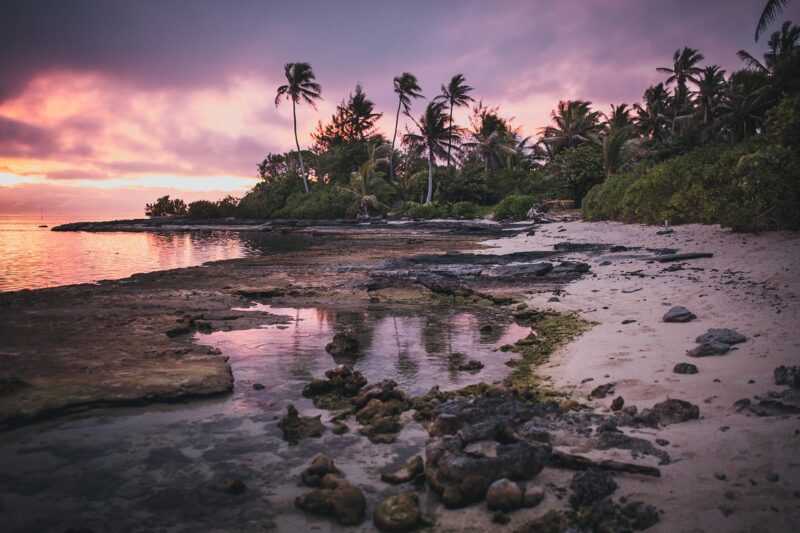Why Travelers Are Flocking to Remote Islands to Escape the Hustle of Urban Life
November 17, 2024

In recent years, the allure of remote islands has become increasingly irresistible to travelers seeking refuge from the relentless pace of urban life. With an abundance of pristine landscapes, serene environments, and unique cultures, these isolated paradises offer a stark contrast to the chaos of metropolitan life. This article explores the growing trend of escapism to remote islands, delving into a myriad of reasons behind this phenomenon.
1. The Allure of Serenity and Natural Beauty
One of the primary reasons travelers are gravitating toward remote islands is the overwhelming sense of peace and natural beauty they offer. In cities, constant noise, pollution, and crowding create an atmosphere that can be mentally exhausting. Conversely, remote islands provide a tranquil environment where vibrant landscapes take the forefront.
Imagine the stunning vistas of turquoise waters, white sandy beaches, and lush tropical landscapes. With fewer people around, the chance to connect with nature is significantly enhanced. Activities like hiking, snorkeling, or simply lounging on the beach allow visitors to immerse themselves in the island’s natural wonders in ways that urban settings rarely offer.
2. A Desire for Authentic Experiences
Travelers today are increasingly seeking authentic experiences that connect them to local cultures. Remote islands often provide a more genuine representation of local traditions, lifestyles, and cuisines, away from the commercialization typical of larger tourist destinations.
Engaging with local communities, participating in traditional crafts, or even learning about sustainable farming practices can deepen the travel experience. Visitors to remote islands can enjoy local dishes prepared using traditional methods while supporting local economies. This chance to forge real connections is a significant draw for mindful travelers.
3. Digital Detox and Rejuvenation
The importance of digital detoxing has been recognized by many as a way to rejuvenate the mind and soul. Remote islands generally have limited internet access and cellular reception, enabling travelers to unplug from the constant bombardment of notifications and news. This temporary disconnection is refreshing and encourages travelers to focus on their surroundings, creating space for self-reflection.
Plan an itinerary filled with hiking, kayaking, or reading a good book on a secluded beach. By immersing themselves in such activities, travelers can recharge their mental health, ultimately leading to a more satisfying and rejuvenating vacation than a trip filled with urban distractions.
4. The Rise of Wellness Tourism
Wellness tourism has been experiencing rapid growth as more people are prioritizing their health. Remote islands often feature wellness retreats that harness the natural beauty of their surroundings to promote relaxation, mindfulness, and rejuvenation.
Visitors can partake in yoga sessions overlooking the ocean, indulge in spa treatments with natural ingredients, or participate in holistic healing practices. The serene settings of these islands naturally lend themselves to a wellness journey, making them ideal for travelers seeking both relaxation and a revitalized sense of purpose.
5. Adventure and Exploration
For some, the call of remote islands lies in adventure and exploration. Many islands offer opportunities for activities like scuba diving, kayaking, and hiking, attracting those with a spirit for adventure. Each island has its unique geological features, flora, and fauna, giving travelers a sense of exploration and discovery as they navigate through lush forests, striking cliffs, or coral reefs.
Moreover, the sense of isolation adds an element of excitement—traveling to a remote island often feels like stepping into the unknown, which is appealing to many adventurers.
6. The Impact of Global Events
In light of recent global events, a noticeable shift has occurred in how people perceive travel. Many have found solace in escaping the hustle of urban life to seek refuge on remote islands, where they can enjoy social distancing in beautiful natural surroundings. The pandemic has heightened the desire for secluded destinations, which can provide a much-needed escape from daily stressors and worries.
This increasing interest in isolation and safety has led both seasoned travelers and first-time adventurers to reconsider their travel choices, potentially giving rise to an enduring trend toward remote island escapism.
7. Eco-conscious Travel Options
Modern travelers are becoming increasingly aware of their environmental impact, and many are choosing destinations that prioritize sustainability. Remote islands often have eco-friendly lodges that promote responsible tourism and environmentally conscious travel practices.
By selecting eco-conscious accommodations and engaging in activities like wildlife preservation programs or beach clean-ups, travelers can enjoy their vacation while also giving back to the environment. Many remote islands advocate for protecting their natural beauty, attracting conscious travelers who appreciate these values.






